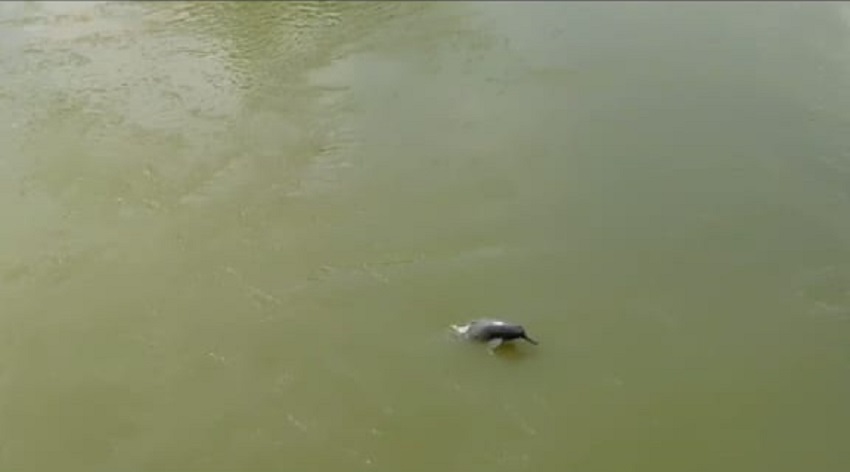The endangered aquatic mammal, the Gangetic Dolphin (Platanista gangetica), has been spotted in the Charikadiya River in Dhakuakhana in Lakhimpur district of Assam. The was reported by Dhruba Jyoti Chetia and Rajib Baruah of Pu N Fu Wild, a wildlife protection group based in Dhakuakhana.
Locally known as Sihu, the sighting of the mammal holds great significance. Gangetic Dolphin was last spotted in the Charikadiya river 25 years ago, with the last documented sighting dating back to 1998. The prolonged absence of this species raised concerns about its dwindling population and near-extinction status.
Hunting, reduction in primary food sources and several other reasons are attributed as probable reasons of the decline of gangetic dolphins in Charikadiya river.
The discovery was made during a routine bird-watching expedition at Bolaighat, Dhakuakhana, led by Dhruba Jyoti Chetia and Rajib Baruah.
According to Wildlife Institute of India, gangetic dolphins were historically distributed in major river systems (Ganges-Brahmaputra-Meghna and Karnaphuli-Sangu) of India, Nepal and Bangladesh. Currently, the species is restricted to disjunct stretches in India’s Ganga-Brahmaputra-Barak river system, Nepal’s Karnali, Sapta Koshi and Narayani river systems, and Bangladesh’s Meghna, Karnaphuli and Sangu river systems.
A long thin snout, rounded belly, stocky body and large flippers are characteristics of the Ganges river dolphin. The species has a slit similar to a blowhole on top of its head, which acts as a nostril. The Ganges river dolphins can only live in freshwater and are essentially blind. They hunt by emitting ultrasonic sounds waves that bounce off of fish and other prey.
Major Threats that the species face are unintentional killing through entanglement in fishing gear; poaching for dolphin oil, used as fish attractant and for medicinal purposes; habitat destruction due to development projects (e.g. water extraction and the construction of barrages, high dams and embankments), pollution among several others.




















